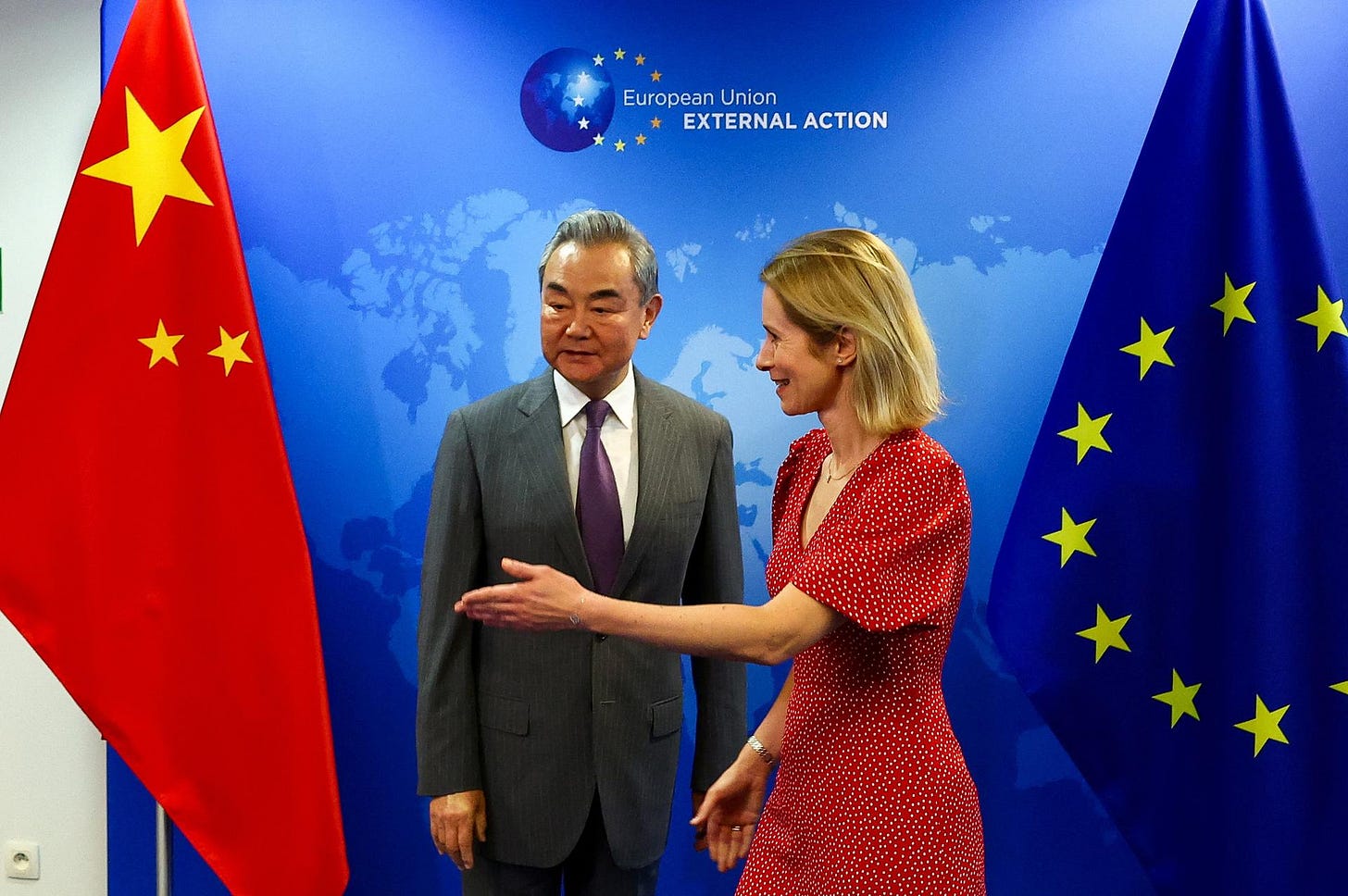Beijing’s Strategy — Power Assertion and “Dominance, Dependency and Blackmail”
EU-China trade relations are continuously fraying under the strain of U.S.-China rivalry.

China has finally made a public acknowledgment that it does not want Russia to lose its war of aggression against Ukraine. Although there has long been ample evidence that China is a key supporter behind Russia’s invasion, this open declaration remains surprising. According to the South China Morning Post, China’s reluctance to see Russia fail in Ukraine stems from a concern that the United States would then turn its full attention to Beijing. The U.S.'s strategic distraction in Ukraine is thus seen as aligning with Beijing’s interests. Meanwhile, Wang Yi denied that China has provided material support to Russia’s war effort—whether financial or military—insisting that if China had done so, the conflict would have already ended. As reported by SCMP, during a four-hour debate, Wang gave Kaja Kallas several lessons in the history of realpolitik.
Subsequently, Le Monde reported on July 5 that the European Union canceled its high-level economic dialogue with China, and that the Chinese leadership had also shortened the originally scheduled two-day Beijing summit to just one day. According to Le Monde, the summit was supposed to be hosted by Brussels, but the Chinese side claimed that Xi Jinping, due to pressing state matters, would not attend in person—even though he always manages to find time for trips to Moscow. As a result, European Council President António Costa and European Commission President Ursula von der Leyen agreed to travel to China themselves.
According to media reports, Wang Yi’s visit to the EU was marked by tension, which was later confirmed by China’s retaliatory trade measures against the bloc. On Sunday, July 6, China’s Ministry of Finance announced that in procurement projects involving medical equipment with budgets exceeding 45 million RMB, EU companies (excluding European-funded companies based in China) should be excluded from participation. For participating non-EU firms, the proportion of medical equipment imported from the EU must not exceed 50% of the project’s total contract value. These measures took effect the same day. In a statement on Sunday, China’s Ministry of Commerce declared that the EU had disregarded China’s goodwill and sincerity, insisted on taking restrictive actions, and was building new protectionist barriers. Therefore, China was left with no choice but to impose reciprocal restrictions.
Wang Yi’s public comments on Russia’s war of aggression appear to deliberately set red lines ahead of the upcoming China-EU talks in Beijing. His manner of denying China’s material support for the war also comes across as a declaration of national strength. Emphasizing that China is different from the United States is clearly an attempt to exploit transatlantic rifts and woo Europe.
It is clear that the EU cannot accept China’s position or role in the Russia-Ukraine war, and has already issued sharp criticisms of Beijing’s strategy of “dominance, dependency, and blackmail.” However, with the United States becoming an increasingly unreliable ally, the EU finds it difficult to effectively respond to China’s trade coercion—despite facing similar challenges in its trade relationship with China as the U.S. does. In an effort to escape the difficult balancing act forced upon it by the U.S.-China rivalry, the EU is now seeking to build a rules-based free trade alliance with countries such as Canada, Switzerland, Japan, and Australia. Clearly, this alliance will exclude both China and the United States.




